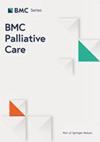"我无法说再见":对在 COVID-19 大流行期间失去亲人的遗属的访谈进行专题分析
IF 2.5
2区 医学
Q2 HEALTH CARE SCIENCES & SERVICES
引用次数: 0
摘要
对于医疗保健专业人员来说,传递重大消息通常具有挑战性,而 COVID-19 大流行和相关限制给这一过程带来了更多挑战。探讨在 COVID-19 大流行期间,丧亲亲属从医护人员那里获得重大消息的经历。这是一项定性研究,采用主题分析和编码手册的方法,对通过半结构式访谈收集到的数据进行分析。数据收集时间为 2022 年 7 月至 8 月,采访对象为在大流行期间(2020 年 3 月至 2022 年 3 月)失去亲人的遗属。研究人员通过社交媒体和一家大学医院姑息治疗病房邀请在该病房接受治疗的死亡患者的遗属参与本研究,采用方便抽样和滚雪球的方法招募参与者。本研究共访问了 22 名参与者,其中包括 4 名男性和 18 名女性。大部分参与者都是逝者的儿子或女儿(5 个孙辈、14 个儿子/女儿、2 个配偶、1 个曾侄女)。研究确定了六个主题:禁止探视造成的负担、对 COVID-19 的恐惧、医护人员不恰当的行为和沟通、高度需要情感支持、需要详细和诚实的沟通、倾向于为医护人员的错误和失误找借口。在大流行病期间,由于缺乏与患者的接触,以及缺乏与员工的支持和感同身受的沟通,传递严重消息的工作受到了负面影响。要克服这些情况,可以利用各种交流工具(如视频会议或电话)进行频繁交流,并在交流过程中保持同理心和诚实。本文介绍了一项针对丧亲者进行的定性研究的结果,研究重点是他们在 COVID-19 大流行期间与医生沟通的经历。亲属们缺乏感同身受的沟通,他们也经历过害怕被感染的恐惧,他们倾向于对医护人员所面临的挑战性环境表示理解。本文章由计算机程序翻译,如有差异,请以英文原文为准。
“I couldn’t say goodbye”: Thematic analysis of interviews with bereaved relatives who lost their loved ones during the COVID-19 pandemic
Delivering serious news is usually challenging for healthcare professionals and the pandemic of COVID-19 and related restrictions brought additional challenges in this process. To explore the experience of bereaved relatives with receiving serious news from healthcare professionals during the pandemic COVID-19. A qualitative study using thematic analysis and a codebook approach of data collected in semi-structured interviews with bereaved relatives. Data were collected from July to August 2022 in person/via phone with bereaved relatives who lost their relatives during the pandemic (from March 2020 to March 2022). Participants were recruited using a convenience sample and snowball method through social media and through one university hospital palliative care unit that invited bereaved relatives of deceased patients treated at the unit to participate in this study. A total of 22 participants, consisting of 4 men and 18 women, were interviewed for this study. Most of the participants were sons or daughters of individuals who had died (5 grandchildren, 14 sons/daughters, 2 spouses, 1 great-niece). Six themes were identified: Burden caused by visit ban, Fear of COVID-19, Inappropriate behaviour and communication of healthcare professionals, High need for emotional support, Need for detailed and honest communication, Tendency to make excuses for mistakes and lapses by healthcare professionals. Delivering serious news during a pandemic was negatively influenced by a lack of contact with patients and a lack of support and empathetic communication with staff. Overcoming these circumstances can be achieved by frequent communication using various communication tools (such as videoconferences or phone calls), and maintaining empathy and honesty in the communication process. This article describes results from a qualitative study with bereaved relatives focused on their experience with communication with physicians during the COVID-19 pandemic. Relatives lacked empathetic communication, they also experienced fear of getting infected and they tended to express understanding for the challenging circumstances faced by the healthcare staff.
求助全文
通过发布文献求助,成功后即可免费获取论文全文。
去求助
来源期刊

BMC Palliative Care
HEALTH CARE SCIENCES & SERVICES-
CiteScore
4.60
自引率
9.70%
发文量
201
审稿时长
21 weeks
期刊介绍:
BMC Palliative Care is an open access journal publishing original peer-reviewed research articles in the clinical, scientific, ethical and policy issues, local and international, regarding all aspects of hospice and palliative care for the dying and for those with profound suffering related to chronic illness.
 求助内容:
求助内容: 应助结果提醒方式:
应助结果提醒方式:


